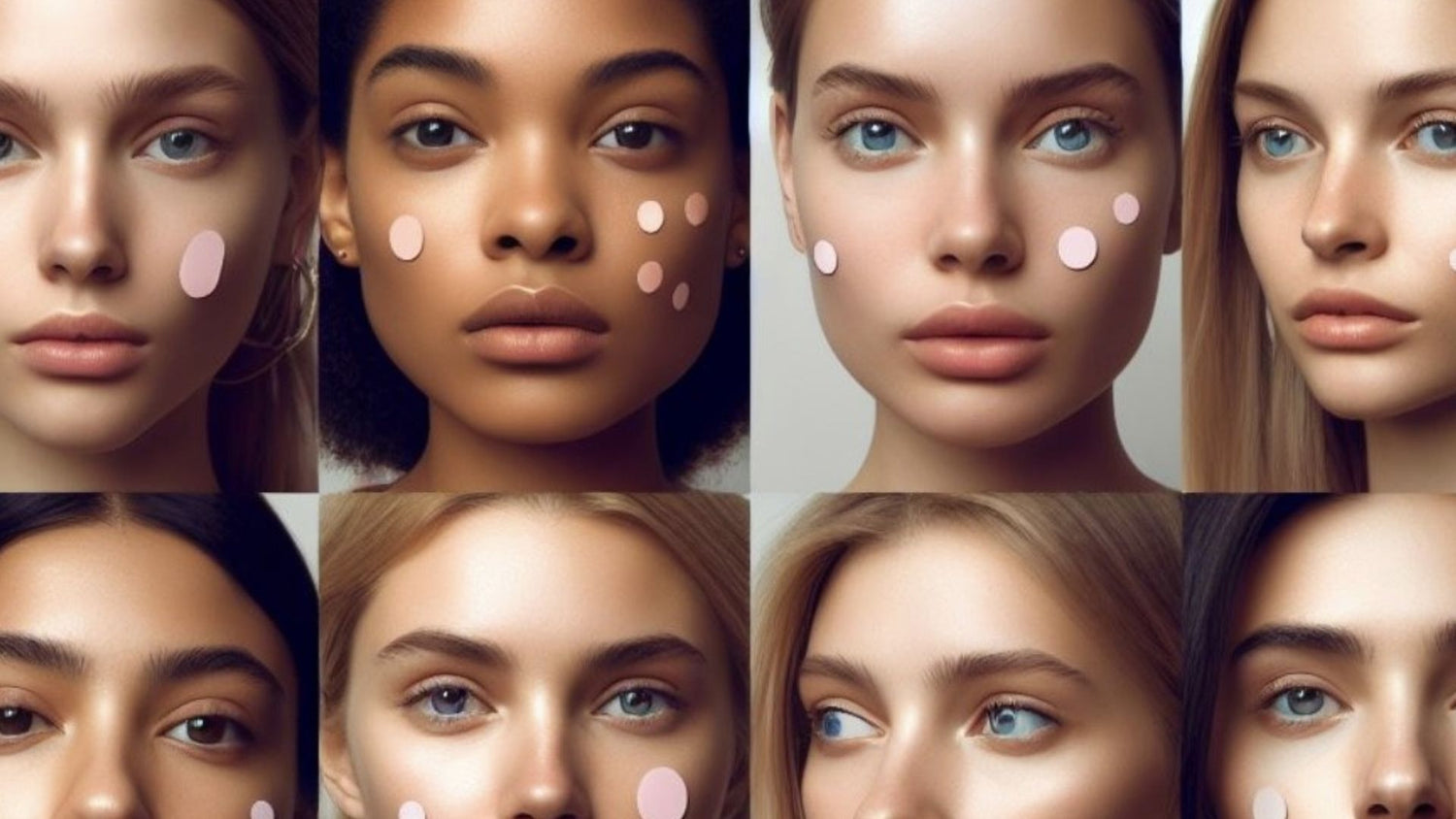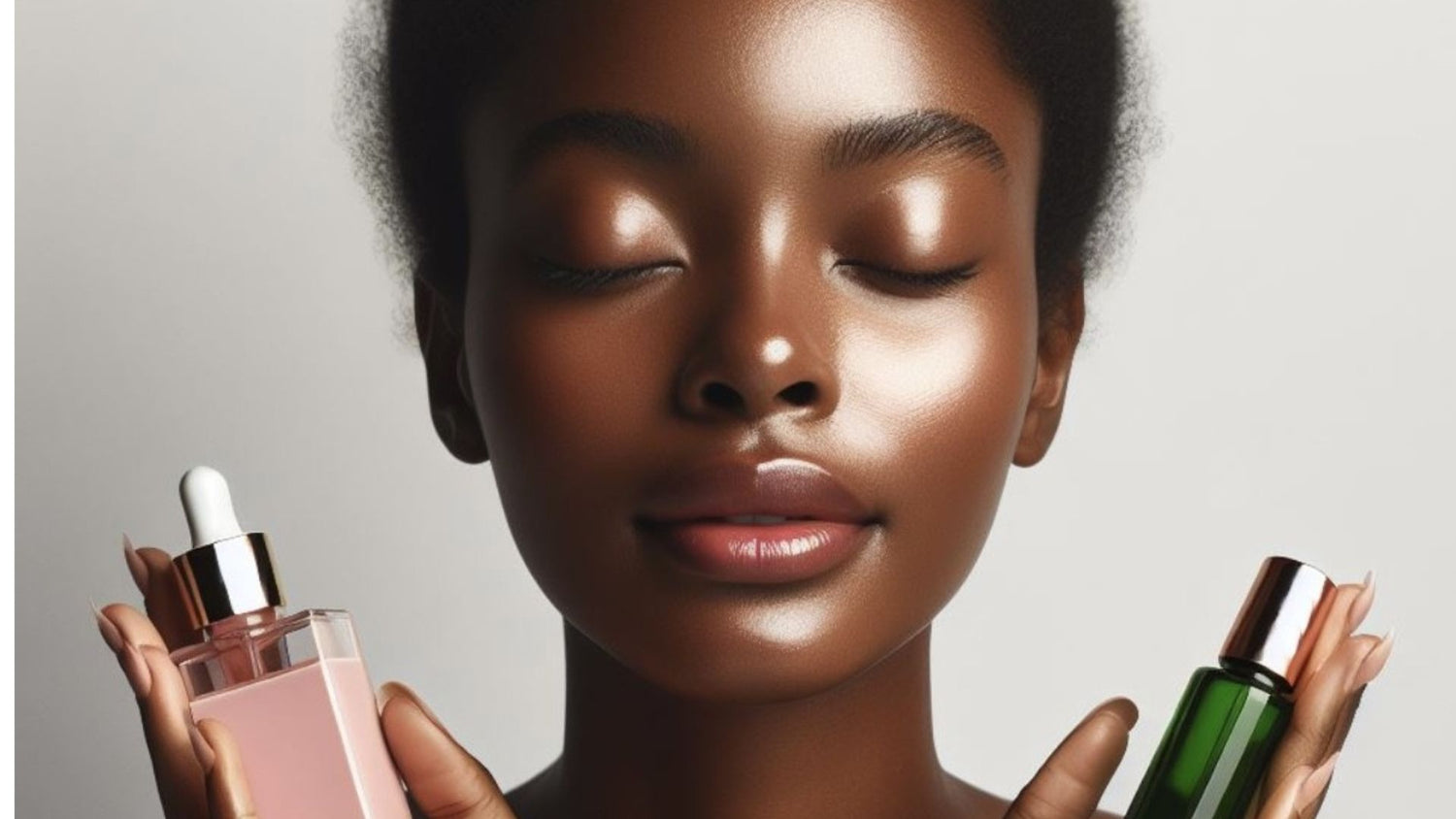Vitamin C is a vital part of good skincare for under your eyes. Applied topically, in a properly formulated serum or cream, it can protect your skin from premature aging, reduce red, puffy eyes and dark circles, improve blood circulation under the eye and lighten and brighten your under-eye skin.
Is Vitamin C Good for Under Eyes?
Absolutely! There are many Vitamin C under-eye benefits. Vitamin C is a powerful antioxidant that protects the delicate skin under your eyes from free radical damage. Free radicals are unstable atoms with a missing electron that attack healthy skin cells to steal their electrons. Antioxidants like Vitamin C provide the missing electrons, thus rendering free radicals harmless.
Ultraviolet (UV) rays from the sun are probably the most damaging cause of free radicals in the environment, causing signs of premature aging such as fine lines and wrinkles, and thinning skin. Cigarette smoke and pollution also produce free radicals in your environment.
Free radicals attack the collagen in your skin. Collagen is what gives skin that plump, taut look and feel. Vitamin C stimulates the production of collagen that plumps and firms the skin under your eyes.
Also, it lightens and brightens the skin, fading hyperpigmentation caused by genetics or even exposure to the sun. Vitamin C can improve circulation around the eyes as well, strengthening blood vessels.
What Causes Dark Under-Eye Skin?
Darkness under the eyes can be caused by increased melanin from excess sun exposure or your genetics. Melanin is the substance that causes the pigment in your skin. People of color are more likely to have darker under-eye skin. Darkness under the eyes can also be caused by blood pooling under the thin skin of the eye.
What Causes Dark Circles Under Eyes?
There are numerous causes for dark circles under the eyes. In addition to the above three examples, here are several other causes.
- Aging – is a very common reason because the skin under your eyes loses fat and collagen as well as its elasticity as you age, causing it to thin and loosen. This allows the blood vessels that run under your eyes to become more visible, causing dark circles. Also, a phenomenon called a tear trough, a hollow under the eyes, can form which causes or contributes to dark circles.
- Allergies – cause dark circles for two reasons. First, the allergic reaction causes histamines to be released into your bloodstream which, in turn, causes the under-eye blood vessels to dilate and therefore become more visible, resulting in dark circles. Second, rubbing itchy and irritated eyes breaks the blood vessels and causes inflammation, together causing dark circles.
- Eyestrain – can cause dark circles. Long periods of time spent in from of computer and TV screens can also cause the blood vessels under the eyes to swell and cause them to become more visible beneath the skin, leading to dark circles.
- Fatigue – can cause paling of the skin so blood vessels show through the thin skin under the eye.
- Puffy eyes – can cast a shadow that looks like dark circles under the eyes. The puffiness can be caused by many things including fatigue, a tear trough, and allergies.
- Smoking – can cause dark circles in part due to the thousands of chemicals in tobacco smoke. A lot of these chemicals attack the collagen in the skin under your eyes, causing it to thin out and causing dark circles when the blood vessels become more visible.
- Stress – can cause or increase the look of dark circles under the eyes. This is because stress pulls blood away from the face in favor of the larger organs, leaving it pale, so the blood vessels are more obvious. Also, stress can cause the capillaries around your eyes to leak blood or break altogether allowing blood to pool under the eye, oxidize and turn dark purple.
- Genetics – the tendency to have dark circles can be inherited and run in families.
- Medical conditions – such as anemia, thyroid disease, eczema, and dermatitis can cause dark circles.
Can Vitamin C Get Rid of Dark Circles?
Yes, Vitamin C can help. Vitamin C’s antioxidant properties start by protecting your delicate under-eye skin’s collagen from free radical damage. Then, Vitamin C stimulates collagen production which can actually thicken the skin under your eyes to reduce the ability of under-eye blood vessels to show through.
Next, Vitamin C brightens and lightens your under-eye skin by interfering with melanin production which causes hyperpigmentation and therefore dark circles beneath the eyes. Lastly, it improves circulation around your eyes, strengthening your blood vessels and preventing blood from pooling beneath your eyes to cause dark circles.
Which Vitamin Removes Dark Circles?
Although vitamin K has shown some promise in reducing under-eye circles, there are not enough studies to properly evaluate its effect.
A vitamin A derivative, retinol, has been used to reduce dark circles. Like vitamin C, it promotes collagen production which smooths and plumps the skin. It can also lighten the skin. But retinol can be quite irritating and makes your skin sensitive to the sun.
Niacinamide, one of the forms of vitamin B3, can also help with dark circles. It helps to hydrate the skin which is important since dehydration is one of the reasons your under-eye skin can look dull and sunken. Also, niacinamide helps lighten your skin. It does this by interfering with the transfer of pigment to the surface of your skin. However, it lacks the antioxidant and anti-inflammatory properties of Vitamin C.
Vitamin E is another vitamin that seems to work well with other vitamins to help fight the signs of aging and dark circles. It is a powerful antioxidant that fights free radical damage. It also moisturizes the skin. More research appears to be needed on whether vitamin E, by itself, is a good treatment for dark circles.
Vitamin C is likely your best bet to reduce the look of dark circles. A powerful antioxidant, not only does Vitamin C help to prevent free radical damage, such as UV damage, but it also helps to repair the damage done by the sun. Vitamin C stimulates collagen synthesis, adding thickness to thinning under eye skin as well as better tone, keeping blood vessels from showing through.
While there are many causes of puffy eyes, one of the most common is aging skin. As you age, your skin loses collagen that would otherwise keep your eye skin firm and elastic. Vitamin C stimulates collagen production which tightens your under-eye skin and reduces any puffiness caused by loss of collagen. Vitamin C’s anti-inflammatory properties also help reduce puffiness as well as redness, which can lead to shadows that cause dark circles under the eyes. It lightens and brightens the skin by interfering with the production of melanin which causes pigment in the skin. Also, Vitamin C’s anti-inflammatory properties help with puffiness which can cause shadows that result in dark circles. And, Vitamin C helps with circulation under the eyes, strengthening the blood vessels and keeping blood from pooling there to create dark circles. It’s an overall dark circle fighting powerhouse!
BeautyStat's Universal C Eye Perfector contains 5 percent pure, stable Vitamin C in the form of L-ascorbic acid, the most active form of Vitamin C. It lightens and brightens under the eyes, reducing puffiness and dark circles. It contains hyaluronic acid to deeply hydrate, while Vitamin C heals the under eyes and relieves irritations caused by free radicals.
Beautystat’s Universal C Eye Perfector also contains optical diffusers to immediately brighten and blur imperfections as soon as you apply it. Its CMH repair complex and EGCG also brighten, protect and repair delicate under-eye skin as well as help to reduce puffiness. And, this gentle, Vitamin C eye treatment contains a mineral sunscreen to help protect your eyes from the sun.
How Do I Fix Dark Circles Under My Eyes?
There are a number of things you can do to fix dark circles, at least temporarily. Here are a few.
- Apply tea bags to your eyes for 10 to 20 minutes. Make sure you choose caffeinated tea because it’s the caffeine plus the antioxidants in the tea that do the trick. This combination will help shrink blood vessels, reduce puffiness and increase blood circulation to the under-eye area. Steep your tea, then cool it in the fridge before applying it to your eyes.
- If you have allergies that are causing your eyes to be puffy, creating dark circles, or causing you to rub your eyes, breaking blood vessels which also creates dark circles – take some allergy medication. Antihistamines can help if taken as directed.
- Apply a cold compress to the eyes for 10 to 20 minutes. This will help lessen puffiness and shrink dilated blood vessels under your eyes causing dark circles. You can use ice wrapped in a cloth, a washcloth dipped in very cold water, a bag of frozen peas in a cloth – you get the idea. You can even use chilled spoons. Do be careful not to overdo it and damage your delicate under-eye skin though.
Can You Reverse Dark Circles?
Probably not, but you may be able to prevent them. Here’s how.
- Use an extra pillow while you sleep to keep your head elevated. This will stop fluid from pooling under your eyes, causing puffiness and dark circles.
- Get a facial that includes an eye area massage. This can help improve circulation around the eyes.
- Protect your eyes from the sun. Use sunscreen for use around the eyes and wear sunglasses and hats whenever you go out in the sun.
- Apply chilled cucumber slices to your eyes for 10 to 15 mines once or twice a day. Cucumbers have both a high Vitamin C and water content. This reduces swelling and puffiness, and thus dark circles.
- Get enough sleep.
- Stay hydrated.
- Avoid smoking.
- Avoid drinking to excess – it dehydrates you and your skin.
- Reduce stress.
- Moisturize your under-eye skin every day.
How Can I Remove Dark Circles Permanently?
There are medical treatments that may help lessen or eliminate the look of dark circles, although perhaps not permanently. These include:
- Chemical peels – using alpha hydroxyl acids, such as glycolic acid may reduce under-eye pigment.
- Laser treatments – include two primary types, one that addresses dark circles caused by hyperpigmentation, and those caused by thinning of the skin and visible blood vessels or slowing circulation. For the first type, the top layers of skin are removed along with the pigment. For the second, both collagen and circulation are stimulated and the skin is tightened.
- Medical tattoos – are just what they sound like, tattoos of permanent concealer under the eyes. These should never be done by anyone but a medical professional due to the many risks involved. They are also controversial because they are permanent and a number of factors, including skin aging and oxidation, can lead to them discoloring over time.
- Injectable fillers – usually involve injecting hyaluronic acid to plump up thinning skin and conceal blood vessels under the eyes or to fill in hollows, like tear troughs that cause shadows and therefore, dark circles.
- Bleaching creams – such as hydroquinone are used to reduce hyperpigmentation but can have side effects.
Diminish dark circles with Beautystat’s Universal C Eye Perfector with 5% pure, stable Vitamin C to promote collagen & lighten under eye skin.



